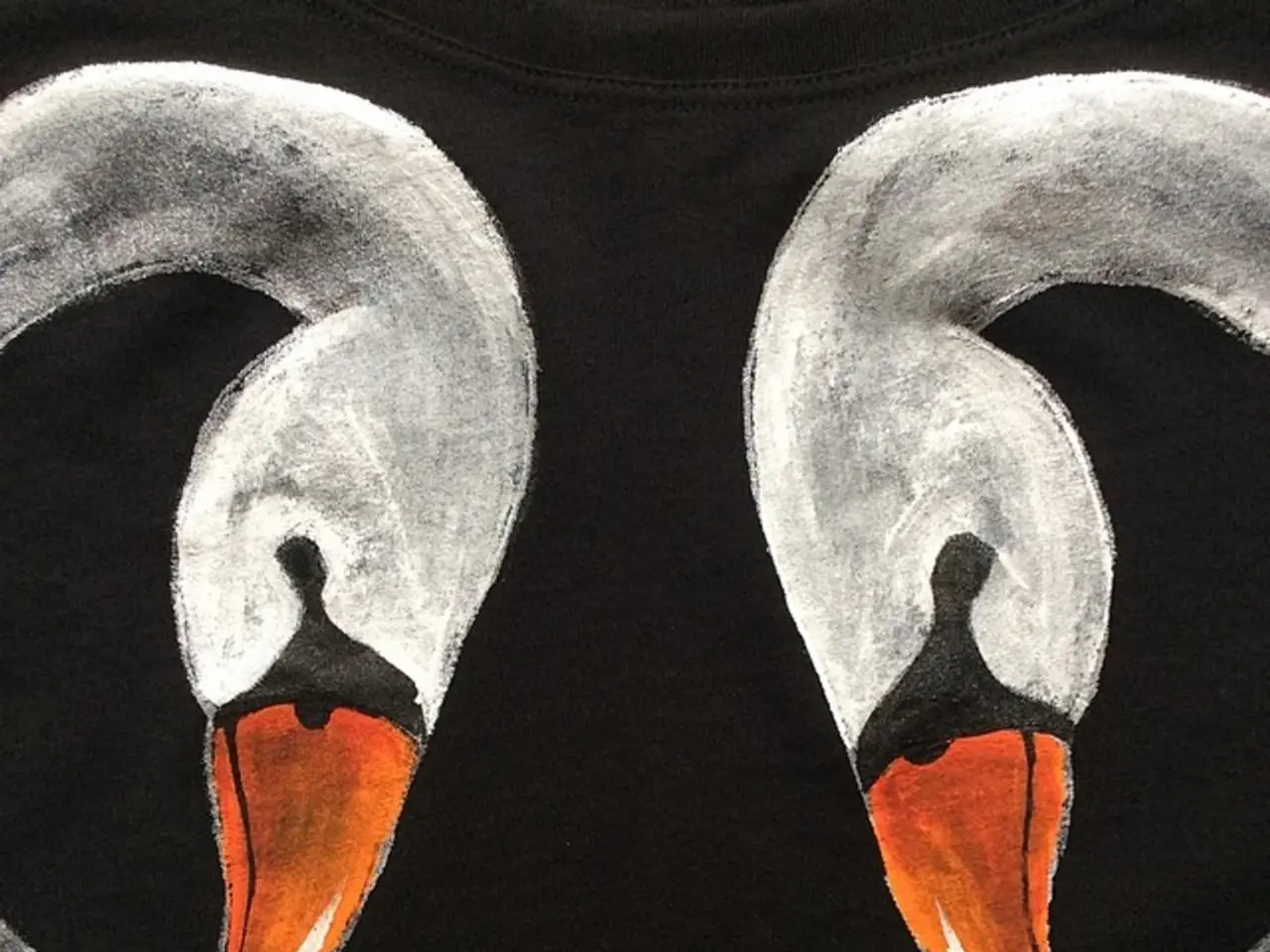Solving the issue of provenance for African art via blockchain technology, Atsur offers innovative solutions.
In the vibrant world of African art, a new player is making waves – Atsur, an innovative art-tech startup based in Nigeria. Atsur is leveraging blockchain technology and artificial intelligence (AI) to address long-standing challenges in the African art ecosystem, such as provenance, protection, and payment [1][2].
The company, founded by Adaobi Orajiaku in 2024, has recently pivoted to a B2B model, partnering primarily with art galleries [2]. This strategic move allows Atsur to onboard numerous artworks efficiently, documenting ownership transitions and provenance at scale. Several Nigerian galleries have already joined the platform, contributing tens to hundreds of artworks per gallery [2].
Atsur's platform creates a digital passport for each artwork, permanently recording its origin, creator, and sales history on the blockchain. Artists upload their work, which is verified via AI analysis of brushstrokes and other details, then tokenized and linked to a blockchain-backed certificate of authenticity. This process helps combat forgeries and ensures trust [1].
Transaction on Atsur's platform are backed on the Polygon blockchain, known for its low cost and high interoperability [2]. The startup generates revenue mainly from commissions on transactions and issuing certificates of authenticity. Atsur's smart contracts also automate royalty payments, ensuring artists receive a share from every resale instantly without intermediaries [1].
Looking forward, Atsur aims to expand its services beyond the B2B model to include direct-to-collector services, broadening access and impact [1][2]. The startup also plans to engage with policymakers and regulators to foster supportive infrastructure and adoption, deepen integration with international marketplaces to increase global exposure of African art, and grow their community of artists, galleries, and collectors [1][2].
Atsur is not just about flashy innovations; it's also building what it terms "soft infrastructure" – foundational tools required for a sustainable African art ecosystem, which while not flashy, are essential to long-term success [2].
In a nutshell, Atsur is currently in early growth, scaling through gallery partnerships, innovating via blockchain and AI for provenance and royalty tracking, and planning to broaden its services and market reach to empower African artists globally while safeguarding art heritage [1][2][3].
[1] TechCrunch. (2023). Atsur is using blockchain and AI to revolutionize Nigeria's art market. [Online]. Available: https://techcrunch.com/2023/03/01/atsur-is-using-blockchain-and-ai-to-revolutionize-nigerias-art-market/
[2] VentureBeat. (2023). Atsur: Building a sustainable African art ecosystem with blockchain technology. [Online]. Available: https://venturebeat.com/2023/03/01/atsur-building-a-sustainable-african-art-ecosystem-with-blockchain-technology/
[3] Forbes. (2023). Atsur: The art-tech startup transforming Nigeria's art market with blockchain. [Online]. Available: https://www.forbes.com/2023/03/01/atsur-the-art-tech-startup-transforming-nigerias-art-market-with-blockchain/
- Atsur's innovative use of blockchain technology and AI in the African art ecosystem is not limited to provenance and payments; they are also exploring partnerships and services in the lifestyle, fashion-and-beauty, data-and-cloud-computing, sports, travel, and fintech sectors.
- As Atsur expands its services, it aims to utilize artificial intelligence for improving digital passports, potentially leading to advancements in the identification of art and preventing forgeries in these different sectors.
- With the increase in transactions and data generated through their platform, Atsur is anticipated to make significant contributions to the storage and analysis of data, using cloud computing and AI for enhancing consumer experiences and driving innovation in technology.
- Atsur's future plans include partnering with artists, galleries, and merchandisers in emerging sectors like fashion and beauty, using AI and blockchain technology to create virtual fashion shows and ensure efficient payments for designer creations.
- As Atsur collaborates with industries such as sports and travel, they will leverage blockchain technology and AI to authenticate merchandise, track ownership of memorabilia, and automate transactions for tickets and bookings, creating a seamless experience for fans and travelers.
- In the realm of art and technology, Atsur is pioneering the integration of artificial intelligence with physical art, potentially paving the way for new forms of interactive installations and experiences in galleries and museums or even creating AI-generated art that could be appreciated and collected by enthusiasts across various sectors, such as tech, travel, sports, and fintech.




